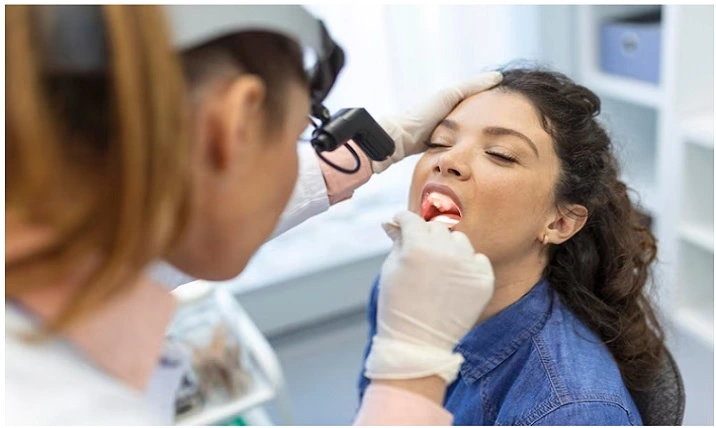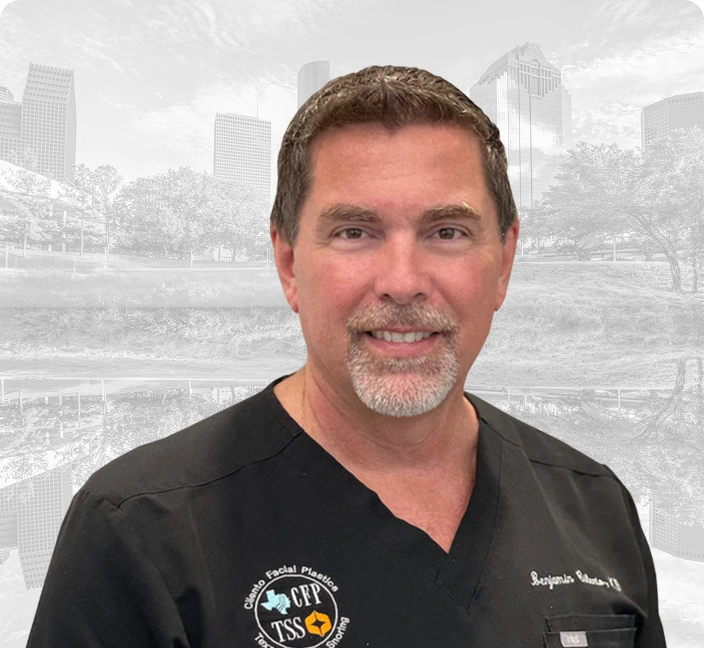Sleep is a crucial aspect of our lives, significantly contributing to our health and well-being. However, achieving restful and rejuvenating sleep can be challenging for some individuals. Obstructive Sleep Apnea (OSA) is a widespread condition that affects millions worldwide, causing disruptions in sleep patterns and leading to various health complications.
Uvulopalatopharyngoplasty (UPPP) is a surgical intervention that relieves individuals grappling with a disruptive sleep disorder. While the name may sound intimidating and complex, it is essential to demystify this procedure and address a common misconception surrounding it – the understanding of the Uvulopalatopharyngoplasty surgery cost.
By exploring this surgical option, individuals with OSA can seek effective treatment to improve their sleep quality and overall well-being. Understanding the costs associated with the Uvulopalatopharyngoplasty procedure can be essential in making informed decisions about managing and treating this sleep disorder.
What is Uvulopalatopharyngoplasty (UPPP) Surgery?
Uvulopalatopharyngoplasty, commonly referred to as UPPP, is a surgical procedure specifically developed to tackle one of the most prevalent and disruptive sleep disorders known as Obstructive Sleep Apnea (OSA). This condition arises when the muscles at the posterior of the throat excessively relax during sleep, resulting in airway narrowing or complete blockage. Consequently, individuals with OSA encounter recurring breathing interruptions throughout the night, leading to fragmented sleep patterns and various health complications.
The primary objective of Uvulopalatopharyngoplasty surgery is to alleviate these airway obstructions and restore unobstructed breathing during sleep. The procedure involves skilfully removing excess tissue from the throat, including the uvula (the small, fleshy structure hanging at the back of the mouth), parts of the soft palate, and the pharyngeal walls.
By excising the surplus tissue, the surgical team widens the airway, reducing the likelihood of obstructions and enabling a smoother flow of air into the lungs. As a result of undergoing Uvulopalatopharyngoplasty (UPPP), patients experience a notable reduction in the frequency and severity of sleep apnea episodes. This improvement facilitates a more restful and uninterrupted sleep experience for the patients.
Factors Affecting UPPP Surgery Cost
We will explore the factors influencing the cost of Uvulopalatopharyngoplasty (UPPP) surgery, providing valuable insights to help individuals make informed decisions about this transformative procedure. By analyzing these factors, we aim to offer clarity and assurance to those seeking relief from Obstructive Sleep Apnea (OSA) in managing their healthcare journey. Let’s examine the primary factors influencing the cost of Uvulopalatopharyngoplasty (UPPP) surgery.
Surgeon’s Experience and Expertise
The experience and expertise of the surgeon significantly influence the cost of Uvulopalatopharyngoplasty (UPPP) surgery. Surgeons with a high skill level and a reputable background in sleep-related surgeries often command higher fees due to their successful track record. To ensure optimal results and minimize potential complications, patients must select a qualified and board-certified surgeon with a proven history of performing UPPP surgeries.
Hospital or Surgical Facility Fees
Hospital or surgical facility fees are pivotal in determining the overall cost of Uvulopalatopharyngoplasty surgery. Opting for high-end private hospitals may entail higher fees in comparison to specialized clinics of smaller scale. Moreover, the cost can be influenced by factors such as the quality of care, available amenities, and the level of advanced technology offered at the selected facility.
Anesthesia Costs
Anesthesia constitutes a crucial and integral aspect of Uvulopalatopharyngoplasty surgery, administered under the expertise of a qualified anesthesiologist. The total cost of UPPP is subject to the duration of the surgical procedure and the specific type of anesthesia employed. Ensuring continuous patient safety and providing optimal comfort throughout the operation remains a top priority, highlighting the essential contribution of a skilled and proficient anesthesiologist.
Pre- and Post-operative Care
Before Uvulopalatopharyngoplasty surgery, patients undergo comprehensive assessments, including sleep studies and medical evaluations. These assessments are vital in determining their suitability for the procedure and ensuring thorough preparation. Moreover, a successful and seamless recovery demands essential post-operative care, encompassing follow-up visits, medication, and potential therapy. These meticulous pre-and post-operative care elements significantly contribute to the overall cost of the surgery.
Geographic Location
The cost of Uvulopalatopharyngoplasty surgery can vary significantly based on the geographic location. Factors such as the cost of living and the demand for medical services in a particular region can influence the overall expense of the surgery. The cost of UPPP surgery may be higher in areas with a higher cost of living and a greater demand for medical facilities and resources. Conversely, the procedure cost may be more affordable in regions with lower living costs and lower demand for medical services. Patients need to consider these geographical factors when evaluating the financial aspects of Uvulopalatopharyngoplasty surgery and making informed decisions about their healthcare options.
Pre-existing Medical Conditions
Pre-existing medical conditions or complications can significantly impact the overall cost of Uvulopalatopharyngoplasty (UPPP) surgery. Depending on the complexity of the pre-existing conditions, specialized care, additional testing, or prolonged hospital stays may be necessary, further contributing to the overall cost. Patients must discuss their medical history thoroughly with the surgical team to ensure appropriate preparation and to understand any potential cost implications related to their specific health condition. Proactively addressing pre-existing medical conditions can help patients make informed decisions about their UPPP surgery and ensure a smooth and successful recovery.
Insurance Coverage and Financing Options
Health insurance policies usually offer coverage for medically necessary procedures, and Uvulopalatopharyngoplasty (UPPP) surgery is included in this category when the patient’s condition meets specific criteria. Healthcare professionals determine the medical necessity through a comprehensive assessment, which provides for sleep studies, analysis, and an evaluation of the severity of the patient’s sleep apnea.
For individuals considering Uvulopalatopharyngoplasty surgery, reviewing their insurance policy and discussing the details with their insurance provider is essential. Here are some critical points to consider:
- Coverage Policies: Insurance companies have varying coverage policies for Uvulopalatopharyngoplasty (UPPP) surgery. While some policies actively cover sleep apnea surgeries, others require meeting specific criteria for approval.
- Prior Authorization: Before undergoing UPPP surgery, patients may need to obtain prior authorization from their insurance provider. This involves submitting medical records and documentation to demonstrate the procedure’s necessity.
- Out-of-Pocket Expenses: Despite insurance coverage, patients may still be responsible for certain out-of-pocket expenses, such as copayments, deductibles, or coinsurance.
- In-Network vs. Out-of-Network Providers: Insurance plans often have a network of preferred providers. Opting for an in-network surgeon or hospital may lead to more favorable coverage terms.
Individuals with financial constraints or limited insurance coverage can access alternative financing options.
- Flexible Spending Accounts (FSAs) or Health Savings Accounts (HSAs): Individuals can utilize Flexible Spending Accounts (FSAs) or Health Savings Accounts (HSAs) to allocate pre-tax funds for medical expenses, including Uvulopalatopharyngoplasty surgery. Leveraging these accounts can offer tax advantages and alleviate the financial burden associated with the procedure.
- Medical Financing Plans: Certain healthcare providers or facilities provide medical financing plans, enabling patients to make installment payments for the procedure over time. These plans often offer lower interest rates compared to traditional loans or credit cards.
- Payment Negotiations: Payment negotiations are possible in some instances, where healthcare providers may consider discussing the Uvulopalatopharyngoplasty cost or devising a tailored payment plan based on the patient’s financial circumstances.
- Medical Assistance Programs: Depending on the individual’s financial situation, local or government-sponsored medical assistance programs may offer financial aid to support necessary surgeries.
Texas Sinus & Snoring: Home of Texas’ Best Place for Uvulopalatopharyngoplasty Surgery
Selecting the most suitable healthcare provider is prominent for individuals considering Uvulopalatopharyngoplasty (UPPP) surgery. Texas Sinus & Snoring holds the esteemed position as the foremost destination for UPPP surgery in Texas. Our esteemed team of highly experienced and qualified surgeons specializes in sleep-related surgeries, exemplifying a relentless commitment to addressing each patient’s unique requirements with exceptional care and attention to detail.
At Texas Sinus & Snoring, everyone deserves to experience the benefits of a restful night’s sleep and a healthier life. Our cutting-edge facilities and empathetic patient care establish an environment where you can feel assured and at ease throughout your path to enhanced sleep health. We emphasize your well-being, safety, and comfort, guaranteeing that your UPPP surgery becomes a transformative step towards improved sleep and an elevated quality of life.
At Texas Sinus & Snoring, we are dedicated to supporting you at every stage of your journey. Whether you or a loved one are considering Uvulopalatopharyngoplasty surgery, our team is here to provide expert care and assistance. Your well-being is our top priority, and we are committed to delivering the highest level of care and support throughout your path toward improved sleep health. Feel free to reach out to us for any further information or inquiries.



